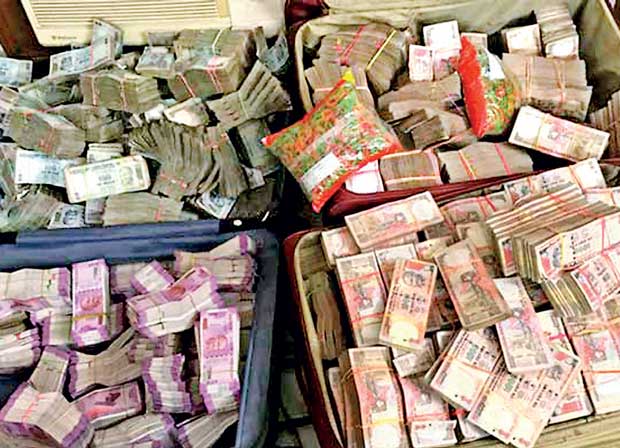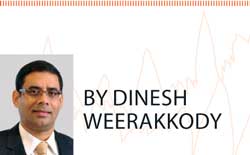16 Aug 2017 - {{hitsCtrl.values.hits}}

 Last year, India in an effort to combat corruption, tax evasion and counterfeiting, all 500 and 1,000 rupee bank notes were withdrawn from circulation. Many international bankers argue with me that India failed miserably in their demonetization effort.
Last year, India in an effort to combat corruption, tax evasion and counterfeiting, all 500 and 1,000 rupee bank notes were withdrawn from circulation. Many international bankers argue with me that India failed miserably in their demonetization effort.
The Modi government’s publicly declared demonetization objectives publicly was that the government wanted to transform the economy into a digital economy. We know we can’t completely transform an economy to a digital economy over night, there are various social classes, example a waiter or steward receive tips, a household worker gets some extra money for a job well-done, parliamentarians get political funds, even some professionals have foundations to earn their donations and sales from books, parliamentarians or politicians have their own Foundations established to get donations and then politicians partly use those money to uplift certain communities, even clergy use money they receive to uplift social standards of communities and to look in to welfare of them, if you take even the establishments such as Roman Catholic Church it has over US $ 60 billion real estate assets around the globe in the name of church lands, missionary schools etc that was purchased from the money that they got from Devotees which went to clergy and The Vatican. Just imagine what happens if citizen Fernando has to donate money by a mobile app that sometimes is not even properly working to transfer money to a temple, kovil, or church, or even a mosque, ...etc. There will be hell to pay all round.
Black money
In the Indian demonetization effort, if the real objective was to attack the ‘black money,’ stored by the political, temples and business elite it has failed. Around ninety percent of the demonetized notes were returned to the banks, far more than the government expected.
This means, as the British Guardian explained that “either the Indians concealed less wealth from taxation than was thought, or that money has been preserved in the form of goods or gold rather than cash.” In fact, according to economists, very probably less than three percent of ‘black money’ is held in currency. In an Indian context it is still big money. Almost all of it is either converted into gold (it is said India has by far the largest private gold reserves in the world), or put into purchases of jewelry, real estate, or land, when it isn’t put into financial investments.
And then when all that money goes in to their bank accounts or other establishments that money too comes to the so called ‘White’ system, this shift overwhelmingly helps the GDP to look good. Gambling (casinos) is said to be one of the world’s biggest industries that create wealth among various social classes, and there gambling moguls around the world who own banks, finance companies, real estate, even in USA there are poker players who become rich overnight and then their wealth transfer into various other establishments when they start using that money, one such example is a spa owner their extra earnings transform to various other business establishments when they purchase goods and services.
Drive away
A full digital economy will drive away lots of people and perhaps increase the poverty if digital transformation is done by creating limitations and wealth limits, although India implemented practices of demonetization if you watched NDTV and other TV News in the last few months you will clearly understand that certain new gray economical activities started as a result of the moves, there were Indian banker families or officials, new brokers who started taking thousands of Indian rupees worth kick-backs from common people to deposit the money under various other names and newly created accounts in India as there were new taxes for deposit limits.
Many people faced identity theft as a result too, India being the world’s largest democracy has the most business savvy politicians, but even they are people who transform wealth to various other religious and social establishments.
Impacted poor people
Several top economists have said globally that what India did was a failure, and it only hugely troubled poor families and specially older people’s savings.
India is the largest gold consumer and India’s activity in impacting global gold prices took a different turn because of demonetization, it enabled the digital currencies such as Bitcoin to overtake the gold price in international markets in the last three months and even if you take bitcoin, people trade in those digital currencies and their capital gains are transformed to other asset classes in the real world finally resulting in the real economy losing.
I’ve previously written about the possible ramifications of the “war on cash” which is now strengthening all over the globe, even in the U.S. Many policymakers, including former Treasury Secretary and President Emeritus, Harvard University Larry Summers with whom I have discussed this subject, are in favor of axing the US$100 bill. In May, the European Central Bank (ECB) said it would stop printing the 500 euro note, though it will still be recognized as legal currency. The decision to scrap a banknote, is now largely hinged on its association with money laundering and terror financing than with economic reform.
(The writer is a thought leader)
06 Jan 2025 1 hours ago
06 Jan 2025 2 hours ago
06 Jan 2025 2 hours ago
06 Jan 2025 2 hours ago
06 Jan 2025 2 hours ago